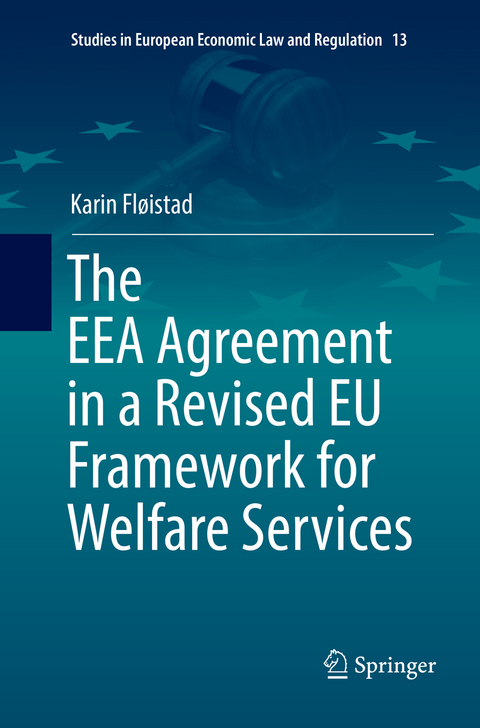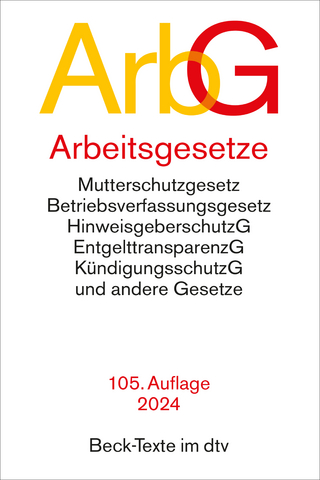
The EEA Agreement in a Revised EU Framework for Welfare Services
Springer International Publishing (Verlag)
978-3-030-06961-2 (ISBN)
This book addresses some of the most debated topics preceding the UK referendum on membership of the EU, namely welfare services and free movement of citizens. The work improves understanding of the implications of the European Economic Area (EEA) Agreement, which is the most integrated form of association agreement with the EU for non-member states. The author considers the impact of EEA law on both European Free Trade Association (EFTA) states and on EU Member States, and looks at case law. A broad range of welfare services are analysed, including public healthcare and educational services, various social services, and public utilities such as transport and public broadcasting. Free movement of students, of patients and public financing of welfare services are among the issues explored.
The focus here is particularly on legal aspects and the demonstrated development of the EEA Agreement into the welfare sphere. This work enables a sophisticated analysis about thenature of the principles of homogeneity and dynamism. The book is essential reading for scholars who seek to understand the EU's legal framework, the EEA Agreement and its implications. The topics covered are also relevant to UK/EU discussions on future relations, both for intermediate and long-term arrangements.
Karin Floistad is presently partner in one of Norway's largest corporate lawfirms, Simonsen Vogt Wiig AS and head of the of the independent Appeals Body for Competition Cases in Norway. She has extensive experience litigating cases in the CJEU and in the EFTA Court and has also given advice in a number of years to both governmental and private clients as a practicing lawyer. She is also qualified to plead before the Supreme Court in Norway and she provides on a regular basis academic services for the law faculty at the University of Oslo.
Introduction.- Part I The EEA Integration Process and Free Movement of Services: Patients' and Students' Mobility in Publicly Financed Systems of Healthcare and Education.- 2 Free Movement of Services and Article 56 TFEU and Article 36 EEA.- 3 The Provision of Healthcare Services: Free Movement Rights for Patients.- 4 The Provision of Educational Services: Free Movement Rights for Students.- 5 Some Reflections on the EEA Integration Process Extending IntoHealthcare and Educational Services Publicly Financed and Mostly Delivered Through Benefits in Kind.- Part II The EEA Integration Process and Union Citizenship: Social Welfare Rights for Non-economically Active Moving EEA Citizens.- 6 Free Movement of Persons and Articles 45, 48 and 21 TFEU and Articles 28 and 29 EEA.- 7 The EU Integration Process and the Right to Free Movement, Residence and Equal Treatment for Union Citizens.- 8 Case Law from the EFTA Court and Decisional Practice of the EFTA Surveillance Authority on the Right to Free Movement, Residence and Equal Treatment Under the Citizens Directive.- 9 Case Law from the EFTA Court and Decisional Practice of the EFTA Surveillance Authority on the Right to Free Movement, Residence and Equal Treatment Under the Coordination Regime for Social Security Benefits.- 10 Some Reflections on the EEA Integration Process Extending into the System of Social Welfare Benefits for Non-economically Active Moving EEA Citizens.- Part III The EEA Integration Process and the Financing of Public Services: Applying State Aid Rules to Welfare Services.- 11 State Aid Law and Articles 14, 106 and 107 TFEU and Articles 59 and 61 EEA.- 12 Legal Tools to Protect State Welfare Services from EU/EEA Competition and State Aid Law.- 13 The Exercise of State Aid Competence by the Commission and the EFTA Surveillance Authority in the Sectors of Largely Non-economic Welfare Services.- 14 Some Reflections on the EEA Integration Process Extending Deeper Into the Financingof Public Services and Limiting States' Legislative Freedom Through State Aid Rules.- 15 Final Observations: Concluding Remarks.- Table of Case Law.- Bibliography.
| Erscheinungsdatum | 18.02.2019 |
|---|---|
| Reihe/Serie | Studies in European Economic Law and Regulation |
| Zusatzinfo | XV, 289 p. |
| Verlagsort | Cham |
| Sprache | englisch |
| Maße | 155 x 235 mm |
| Gewicht | 474 g |
| Themenwelt | Recht / Steuern ► Arbeits- / Sozialrecht ► Arbeitsrecht |
| Recht / Steuern ► Arbeits- / Sozialrecht ► Sozialrecht | |
| Recht / Steuern ► EU / Internationales Recht | |
| Schlagworte | EFTA institutions (EFTA Court, EFTA Surveillance A • EFTA institutions (EFTA Court, EFTA Surveillance Authority) • European Economic Area Agreement (EEA Agreement) • Free movement of patients (health care services) • :Free movement of students (educational services) • Principal of dynamism • Principle of homogeneity • Public financing of welfare services • State aid and welfare services • The Rule of Law • Union citizenship (free movement of persons in the • Union citizenship (free movement of persons in the EEA) • Union citizenship (free movement of persons in the EEA) |
| ISBN-10 | 3-030-06961-3 / 3030069613 |
| ISBN-13 | 978-3-030-06961-2 / 9783030069612 |
| Zustand | Neuware |
| Haben Sie eine Frage zum Produkt? |
aus dem Bereich


